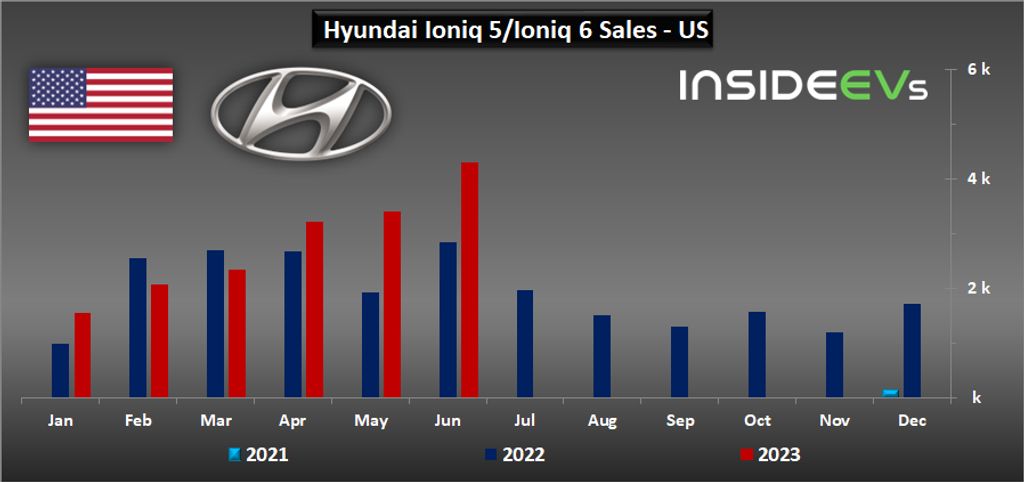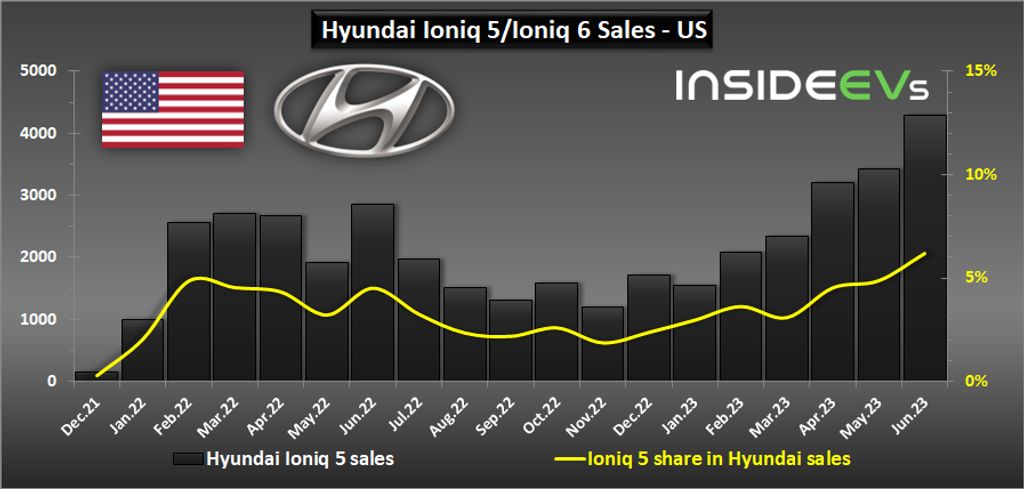Hyundai Motor America reports 69,351 vehicle sales in the United States in June, which is an increase of nearly 10 percent year-over-year. The year-to-date result of 394,613 is almost 15 percent higher than a year ago.
The South Korean brand quite significantly increased sales of its all-electric cars too. In June, sales of the Ioniq 5 and Ioniq 6 amounted to 4,298 units, which is 51 percent more than a year ago, and a new monthly record. That’s also 6.2 percent of the total volume.
The sales results of the E-GMP-based Ioniq 5 crossover/SUV and Ioniq 6 sedan were both a record high – respectively 3,136 and 1,162. That’s an interesting outcome, considering the lack of eligibility for the $7,500 federal tax credit for new purchases.
The Hyundai Kona Electric apparently also does pretty well but we don’t have the exact number (the company says it’s up 239 percent year-over-year).
Randy Parker, CEO, Hyundai Motor America said:
“Our award-winning EV line-up continues to build momentum with the best all-time monthly sales for the IONIQ 5 and the first time with over a thousand units sold for the IONIQ 6. Our strong retail partners and the right product at the right time have enabled us to attract new and existing customers to the Hyundai brand.”
Overall, it seems like a very solid starting point for the second half of the year.
Hyundai BEV sales last month:
In Q2, Hyundai E-GMP-based BEV sales amounted to 10,928 (47 percent more than a year ago).
So far this year, more than 16,800 Hyundai Ioniq 5/Ioniq 6 were sold in the US (up 23 percent year-over-year).
Hyundai BEV sales YTD in 2023:
- Hyundai Ioniq 5: 13,641 (down 0.4% year-over-year)
- Hyundai Ioniq 6: 3,245 (new)
- Hyundai Kona Electric: N/A
- Total Ioniq family: 16,886 (up 23% year-over-year) and 4.3% share
For reference, during the 12 months of 2022, the total sales of the Hyundai Ioniq 5 amounted to 22,982, which represented about 3.2 percent of the total volume.
Unfortunately, the official stats do not include the sales results of other all-electric or plug-in hybrid models, as they are counted together with conventional or non-rechargeable hybrids.
The hydrogen fuel cell model – Hyundai Nexo – noted 8 units last month (down 84 percent). So far this year, 105 have been delivered, which is 61 percent less than a year ago.



